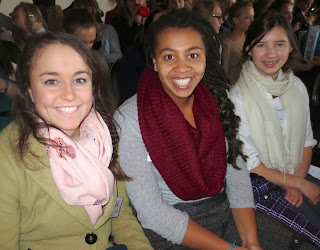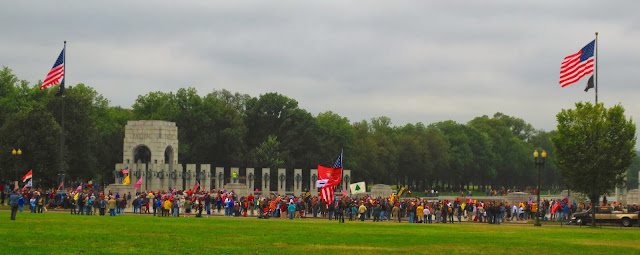Model United Nations is a great way to expose students to the realities of becoming a global citizen. Early this week I spent two
and a half days at the University of Montana in Missoula for the Model United
Nations state conference.
Twenty-eight
students from Bozeman attended, representing 8 different countries:
China South Sudan
Belgium Uzbekistan
Malawi Zimbabwe
 |
| South Sudan |
 |
| Belgium |
 |
| Zimbabwe |
 |
| New Zealand |
 |
| Armenia |
 |
| Malawi |
 |
| China |
 |
| Practicing Parliamentary Procedure in the hotel room |
Over 350 students from
schools across Montana (and one from Idaho) participated in negotiating and
passing resolutions, just as they do in the real United Nations. This provided an in depth opportunity for
students to learn how to become engaged global citizens.
A few highlights:
· The conference is run by university students in Dr. Karen
Adams’ United Nations class at the U of M.
It was great for high school students to see what they could do if they
chose to pursue Model UN at the collegiate level. It was also exciting to be around the college
atmosphere since most students will be there themselves in a year.
 |
| Enjoying lunch in the dorm cafeteria |
 |
| A former BHS student, now the Secretary-General |
· Students were divided into committees and each
committee focused on two issues of global importance. Issues ranged from:
o Refugees
o Crisis in Syria
o International cooperation in the arctic region
o Reforming the Security Council
o Controlling the drug trade
o Women in development
o Dealing with a global pandemic
· Monday night students participated in a Region Night
where they were divided by geographic location and heard from international
students from each region. It provided a
great opportunity to learn from people who knew these places first-hand.
How Model UN helps students:
· In preparing position papers before the conference,
students refined their research skills
as they sought to understand
perspectives of other countries.
· In their committees, students were required to collaborate and compromise to develop
and pass resolutions. As often as
possible students maintained the integrity of the position of the countries
they were representing.
 |
| Speaking in front of the full plenary |
 |
| Speaking in committee |
 |
| BHS student speaking in favor of her resolution |
· Students used parliamentary
procedure to debate resolutions,
requiring them to develop impromptu and argumentative speaking skills.
· During un-moderated caucuses students had to forge alliances with other countries to
gain enough votes for their resolutions.
Many students joined forces
with students from other schools in order to co-sponsor resolutions, just as
countries do in the actual United Nations.
· Most importantly, students learned how to become
global citizens as they engaged in vital
world issues and community building during this United Nations simulation.
 |
| Distinguished winners |
A huge thank you to Dr. Karen
Adams and her Model UN class for putting on such a wonderful conference.
Thanks also to the Hilton Edgewater for being
willing to host 28 high schools kids in their rooms. It’s always fun spending time with students
beyond the classroom, and we had some good times, including a stop for ice
cream on our way out of town.
 |
| BHS students who received recognition |




































